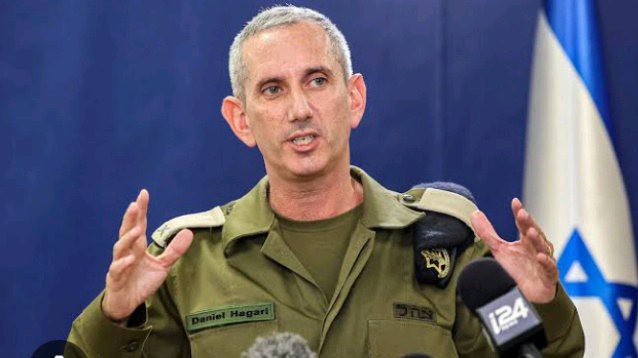The Israel Defense Forces (IDF) spokesperson, Rear Admiral Daniel Hagari, outlined the extensive and complex nature of the ongoing conflict Israel faces.
Speaking after a recent UAV attack in Tel Aviv, Hagari emphasized that Israel is engaged in a multi-front war against several adversaries, all linked to Iran.
In the video he stated “We are fighting a multi-front war. Hamas in Gaza, Hezbollah in Lebanon, the militias in Iraq and Syria, as well as the Houthis in Yemen, all the Iranian proxies, and Iran itself,” Hagari stated.
This statement emphasizes the broad scope of Israel’s security challenges. The inclusion of multiple groups across different regions highlights the widespread influence of Iran and its proxies in the Middle East. Hamas and Hezbollah have long been recognized as significant threats, but the mention of militias in Iraq and Syria, along with the Houthis in Yemen, indicates a broader network of adversaries.
The UAV attack in Tel Aviv earlier today serves as a stark reminder of the ongoing threats Israel faces. The details of the attack have not been fully disclosed, but the incident has heightened tensions and underscored the need for vigilant defense measures.
Hagari’s remarks also bring attention to the regional dynamics and the persistent threat posed by Iranian-backed groups. Each of these groups has different operational bases and capabilities, contributing to a multifaceted security challenge for Israel. The Iranian support for these groups includes financial, logistical, and military aid, further complicating the conflict dynamics.
The IDF continues to respond to these threats with a combination of military operations and intelligence efforts. The ongoing conflict, as described by Hagari, reflects the intricate and enduring nature of the regional security situation. The UAV attack in Tel Aviv is just one example of the constant vigilance required to address these multifaceted threats….Seë_Morë

